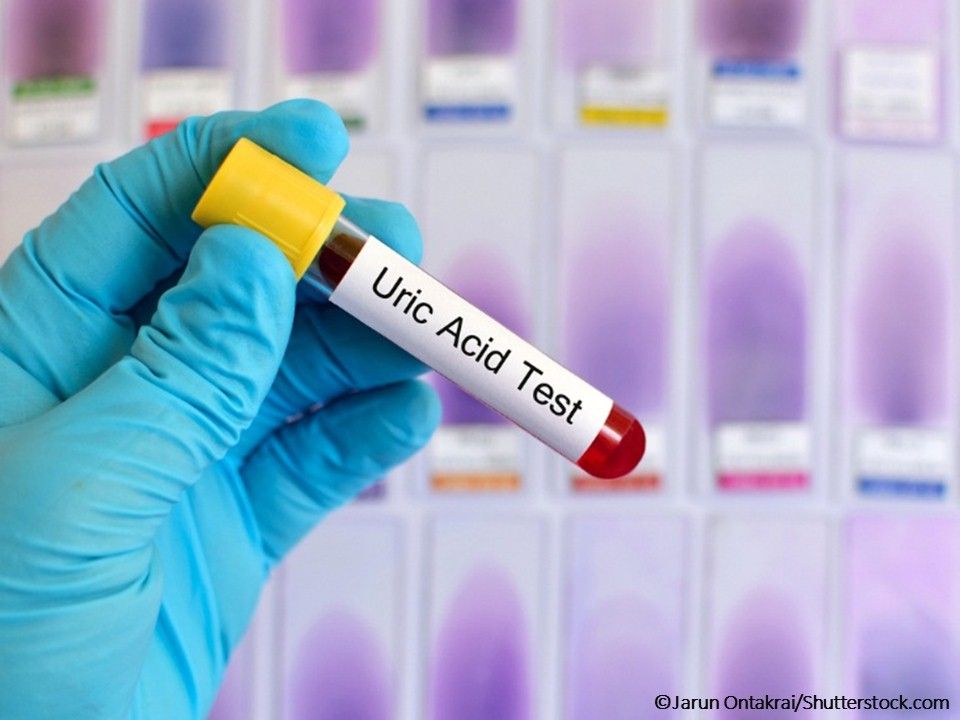Article
Allopurinol Safe Even With Chronic Kidney Disease
A green light for dosing to achieve the target urate level.
©Jarun Ontakrai/Shutterstock.com

Key points
• Allopurinol is a safe and effective therapy for lowering urate levels in gout, even in patients with creatinine clearances (CrCL) < 30 mL/min.
• High doses of allopurinol are rarely needed to achieve acceptable urate levels in patients with chronic kidney disease.
• High doses are more likely necessary in gout patients with normal kidney function.
Background
According to Stamp and colleagues in New Zealand, "The use of allopurinol in people with chronic kidney disease remains one of the most controversial areas in gout management."1
Allopurinol remains the first-line drug for lowering urate in patients with gout and is prescribed in escalating doses to a target urate level. In patients with poor kidney function, the American College of Rheumatology (ACR) and the European League Against Rheumatism (EULAR) have conflicting recommendations with regards to allopurinol dosing: the ACR recommends dose escalation and EULAR dose restriction.
Previous studies that have looked at urate-lowering therapy have not included patients with chronic kidney disease. The authors sought to determine the effect of baseline kidney function on the safety and efficacy of allopurinol escalation therapy. They recently published their findings in Arthritis Research & Therapy.
The study
The authors conducted an open, randomized, controlled, parallel-group, comparative clinical trial in New Zealand that looked at gout patients with and without chronic kidney disease being treated with allopurinol for urate lowering. Of the 183 patients who entered the study, 143 and 137 made it to the 12- and 24-month visits, respectively.
The results
• In both control/dose escalation and dose escalation/dose escalation groups, baseline serum urate was significantly higher in patients with CrCL < 30 mL/min than in those with higher CrCL.
• All groups saw a reduction in serum urate below 6 mg/dL by month 24.
• There was no difference in serum urate reduction between those with CrCL < 30 mL/min and those with higher CrCL (P = .65).
• Patients with serum CrCL < 30 mL/min had significantly greater reductions in serum urate than those with CrCL > 30 mL/min (P = .002).
• Average allopurinol doses were significantly lower in those with CrCL < 30mL/min than those with higher CrCL (P = .001).
• The incidence of significant adverse events was similar between all dosage groups and kidney function ranges.
Implications for clinicians
• Current recommendations for increasing allopurinol doses to target urate levels in patients with gout are safe and effective-even in those with chronic kidney disease.
• Gout sufferers with creatinine clearances less than 30 mL/min typically require lower doses of allopurinol to achieve the same reductions in serum urate levels.
• Allopurinol should remain the first-line drug for serum urate reduction even in gout patients with kidney disease.
References:
1. Stamp LK, Chapman PT, Barclay M, et al. The effect of kidney function on the urate lowering effect and safety of increasing allopurinol above doses based on creatinine clearance: a post hoc analysis of a randomized controlled trial. Arthritis Res Ther. 2017;19:283. DOI 10.1186/s13075-017-1491-x




